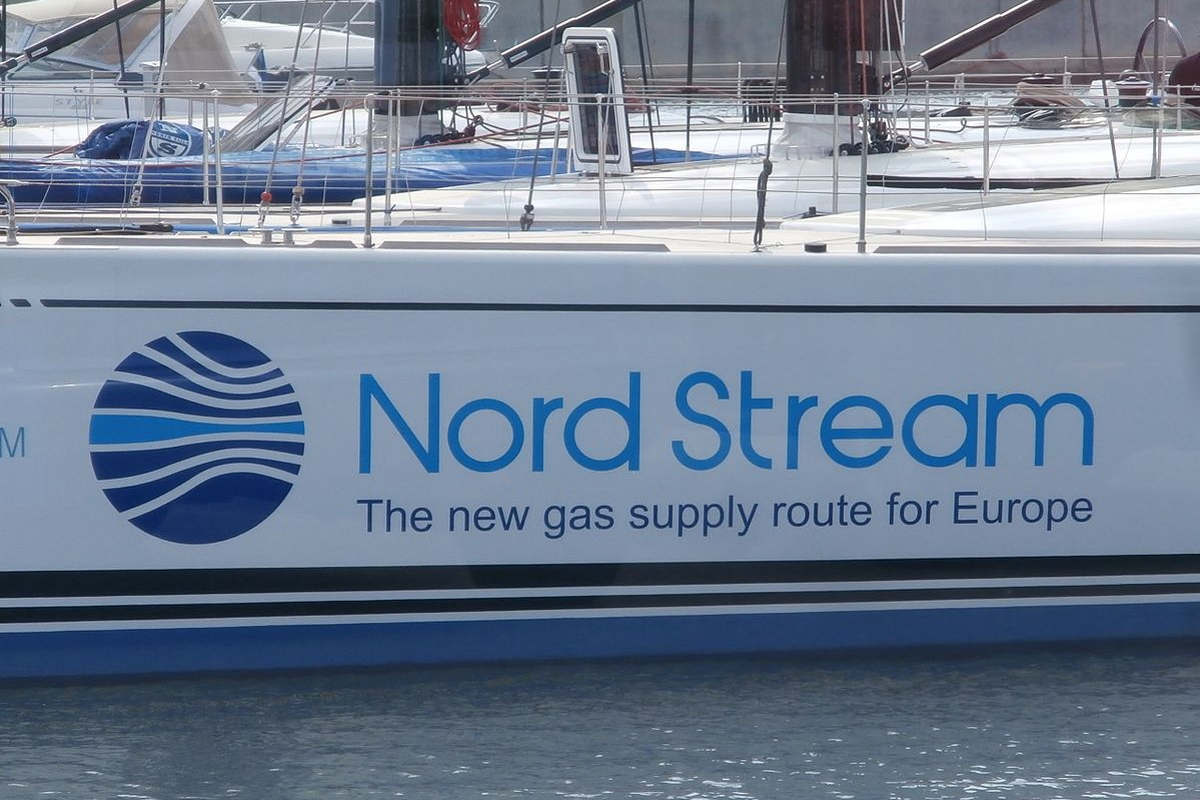Washington has agreed with Berlin on the completion of the Nord Stream 2 pipeline for Russian gas, under the Baltic. In exchange Germany has promised investments and political support for Ukraine.

By Robert Harneis
US President Joe Biden administration officials confirmed the existence of the agreement on Wednesday, details of which had been leaked to the press earlier. Under the four-point plan, Germany and the US are to invest in energy security and green energy in Ukraine and Europe and back the “Three Seas Initiative” spearheaded by Poland.
Berlin also agreed to push Russia into extending the current gas arrangement with Ukraine, which provides Kiev with $3 billion in annual transit fees, until 2034. Berlin also promised to back sanctions against Moscow if it commits “aggression” against Ukraine.
Nord Stream 2 was nearing completion
“Should Russia attempt to use energy as a weapon or commit further aggressive acts against Ukraine, Germany will take action at the national level and press for effective measures at the European level, including sanctions to limit Russian export capabilities to Europe in the energy sector,” an unnamed State Department official told reporters, repeating the statement given by undersecretary for political affairs Victoria Nuland before the Senate Foreign Relations Committee earlier in the day.
Meanwhile, the Kremlin said Russian President Vladimir Putin has received a phone call from German Chancellor Angela Merkel about the arrangement, and they were both “satisfied” with the fact Nord Stream 2 was nearing completion. The possibility of extending the transit agreement between Russia’s Gazprom and Ukraine’s Naftogaz beyond 2024 was “touched upon,” the Kremlin said in the readout of the call.
Early reports about the US-German deal spoke of a $50 million investment in green and other energy projects in Ukraine. Framing this as an effort to combat climate change, Berlin said the two countries would “endeavor to promote and support investments of at least $1 billion… including from third parties such as private-sector entities.” Germany’s initial donation will be at least $175 million and may be extended in future budgets.
As soon as possible and no later than September 1
Germany also pledged $70 million in investments to help Ukraine transition away from coal and modernize its gas infrastructure, including creating the capacity for reverse gas flow, should Moscow cut gas supplies to Kiev for any reason.
The joint US German statement also sets out that Germany will actively support the extension of the 5 year agreement previously extracted from Russia to continue sending gas through Ukraine to 10 years. “The United States and Germany are united in their belief that it is in Ukraine’s and Europe’s interest for gas transit via Ukraine to continue beyond 2024. In line with this belief, Germany commits to utilize all available leverage to facilitate an extension of up to 10 years to Ukraine’s gas Transit agreement with Russia, including appointing a special envoy to support those negotiations, to begin as soon as possible and no later than September 1. The United States commits to fully support these efforts.” The statement said.
Stop the flow of natural gas from Russia into the EU
The US-German deal has been under negotiation for some time, but significantly was not announced last week during Merkel’s visit to Washington. According to the Wall Street Journal, the US demanded a termination clause in the pipeline’s operating rules, but Germany refused, saying it was a commercial project and such government action would be illegal.
Washington has insisted the US has “consulted closely” with Ukraine and Poland on the matter. Both countries stand to lose considerable economic and political leverage – especially the ability to stop the flow of natural gas from Russia into the EU and have been working feverishly for years to stop the pipeline.
Further consolation for Poland and Ukraine is a German commitment to support the Intermarium or “Three Seas Project” that links ten EU countries between the Baltic, the Black Sea and the Adriatic.
Former Pentagon policy adviser Derek Chollet, now a senior State Department official, traveled to Kiev this week to inform the government of President Volodymyr Zelensky of the agreement’s details – and invite him to visit the White House on August 30, presumably as compensation.
“More than they had yesterday”
Nuland on Wednesday told the Senate that reports – published on Tuesday in Politico, citing unnamed officials – that the Biden administration sought to pressure Kiev into staying silent on the US-German deal were “categorically incorrect.” While the pipeline is “bad” for Ukraine, she said, the deal gives them “more than they had yesterday.”
The deal with Berlin is a face-saving arrangement for Biden, whose administration gave up on attempts to block the pipeline’s completion in May. Saying, correctly, that further pressure on Germany would be counterproductive and alienate an ally, the State Department waived sanctions against Nord Stream 2 and its German CEO, while aiming at Russian construction vessels instead.
The White House argued it couldn’t stop the pipeline that was already 95% complete at the time Biden took office. His predecessor Donald Trump managed to delay the pipeline by two years, successfully intimidating a Swiss-Dutch contractor with sanctions, until Russian construction ships replaced them.
Restricting use of the 472 km pipeline into Germany
Meanwhile on 17 July, the European Court of Justice in what looks like a highly political decision, not only by its content but also its timing, overturned a lower court ruling allowing Germany unlimited use of the OPAL pipeline for Nord Stream gas. Instead the court ruled in favor of Poland, restricting use of the 472 km pipeline into Germany. According to the court’s decision, which is final, the EU must take into account the concerns expressed by Poland, as well as Lithuania, about the rising Russian gas supply to Europe, because the exemption of Gazprom from EU energy legislation was “in breach of the principle of energy solidarity.”
Chancellor Merkel leaves office in September having completed both Nord Stream 1 and 2 during her period in office despite intense US pressure to stop the projects. This was especially true of NS2 which was undertaken after Poland and the Baltic states, countries hostile to Russia, joined the EU.
The US German agreement shows continued US determination to keep the EU, especially Germany, and Russia apart. But it also demonstrates, on the part of Germany, that there are limits to its subservience to Washington. Under President Trump the US took extreme measures against its main EU ally and failed to get its way. The US has however enshrined in the agreement its influence on EU energy policy.
It is likely the affair will leave its mark on relations between the EU and the United States but also within the EU.

